Storm Boy star David Gulpilil: We sing and dance to the pelicans
ALMOST four decades after playing Fingerbone Bill in Storm Boy, actor David Gulpilil says it remains an unforgettable part of his life.
ALMOST four decades after playing Fingerbone Bill in Storm Boy, the treasured South Australian film about a boy who raises a pelican on the Coorong, actor David Gulpilil says it remains an unforgettable part of his life.
“Pelicans are my totem so it was a special film” said Gulpilil, 62, who went back to the Coorong where Storm Boy was filmed in the lead-up to next week’s Adelaide Film Festival.
“I come from way up north but they’re still my totem, still my Dreaming. We sing and dance to the pelicans.”
Gulpilil, a Yolngu man and a living legend whose talent was honoured internationally at the 2014 Cannes Film Festival when he won best actor for Rolf de Heer’s Charlie’s Country (in the specialist category Un Certain Regard”) said Storm Boy endured because its message was simple and strong.
“It’s a big statement between me and a little boy and a pelican, and it’s about the land,” he told The Advertiser. “Both are telling the story; from me how I loved the pelican because it’s my Dreaming, and the little boy loved it too.
“My part was teaching the little boy how to be a friend to the animals, teach him how to feed them.”
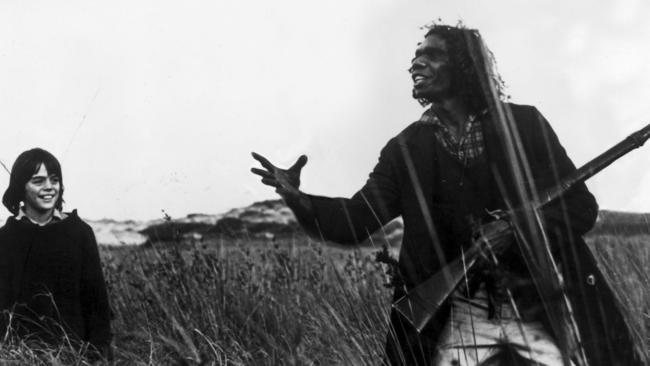
The film, a remastered version of which will show on the final day of the Adelaide Film Festival, was Gulpilil’s second after Walkabout, about two siblings stranded in the outback. It helped catapult him to international fame and a career that spanned Crocodile Dundee, Peter Weir’s The Last Wave and more recently Baz Luhrmann’s Australia, as well as collaborations with former Adelaide director Rolf de Heer.
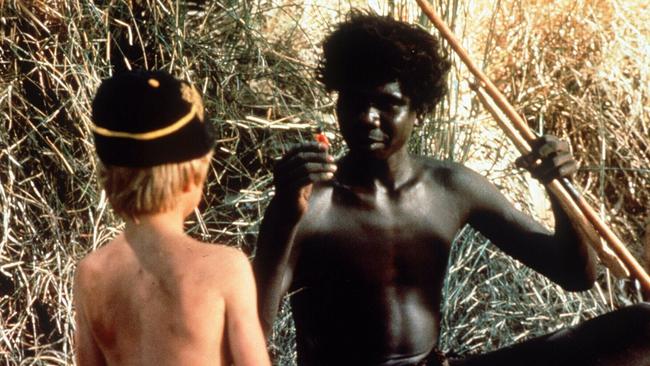
He mixed with the rich and famous, including reggae star Bob Marley, rock guitarist Jimi Hendrix and John Lennon, all now dead. Gulpilil nearly didn’t make it and was found by de Heer near death in a Northern Territory jail, where he was serving a sentence for the drunken assault of his partner.
He dried out and turned his life around, made Charlie’s Country and a new film, Another Country, about his home in Arnhem Land which will screen at the AFF.
After spending time in South Australia in the 1970s (living on Norwood Parade next to the office of Don Dunstan), Gulpilil recently returned to SA to live in Murray Bridge, where he has extended family and can be close to the South Australian Film Corporation movie hub.
“I’ve got a plan to sit down and write scripts with more film writers so I can work from here,” he said. “I’m an artist and I love South Australia.”
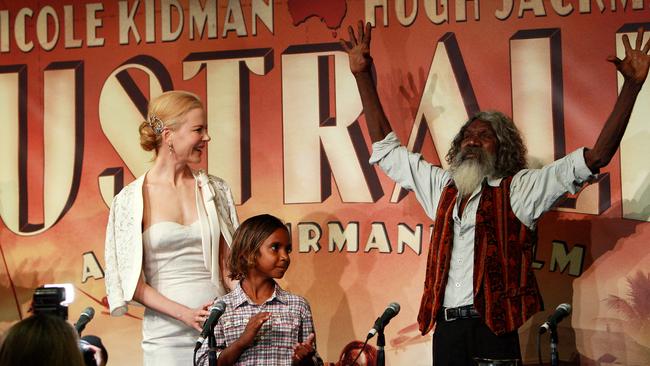
He said another collaboration with de Heer was possible. “Rolf and I are like brothers and we can do filming any time I like,” he said.
Gulpilil likes to visit the Coorong and said the recent invasion of long-nosed fur seals which are attacking and killing pelicans had to be stopped, although he did not support calls for a cull.
“We have to trap the seals and send them back to sea,” he said. “They can go in the sea but not this one. (The Coorong) is a pond.”
In a testament to Storm Boy’s place in popular culture, a Facebook page recording seal attacks on pelicans in the Coorong is called Saving Mr Percival, after the pelican in the film. Three pelicans were used during filming but the main one lived at Adelaide Zoo until 2009, when he died at 33.
Film that took the beauty of the Coorong to the world
FILMED on the Coorong in early 1976, Storm Boy took root in the nation’s consciousness almost from the moment it was made. Based on the book by South Australian author Colin Thiele, the story of a young boy who raises pelican chicks after their mother is shot by a hunter put the isolated beaches southeast of Adelaide on the cinematic map.
“I think it is one of those significant films you see as a young person,” says South Australian Film Corporation head Annabelle Sheehan, who first saw it at high school. She adds: “I think you have it in your sense memory of Aus-tralian screen history.”
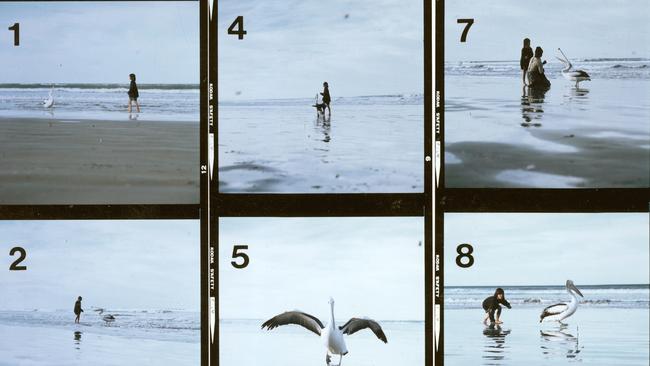
It is the quintessential family film, although it has dark moments, and was part of a new wave of film in the 1970s in which Australian voices were being heard for the first time. It also spoke, unusually at the time, about the environment and introduced the Coorong to the world.
“I think the location was part of the fascination,” Ms Sheehan said. “I don’t think you would necessarily have got that at the time but when you think about global and Australian film history and images of Australia going out into the world, people seeing the Coorong is quite important.”
The film had three stars: Adelaide child actor Greg Rowe, Yolngu man David Gulpilil, who played his friend Fingerbone Bill, and Mr Percival, the pelican.
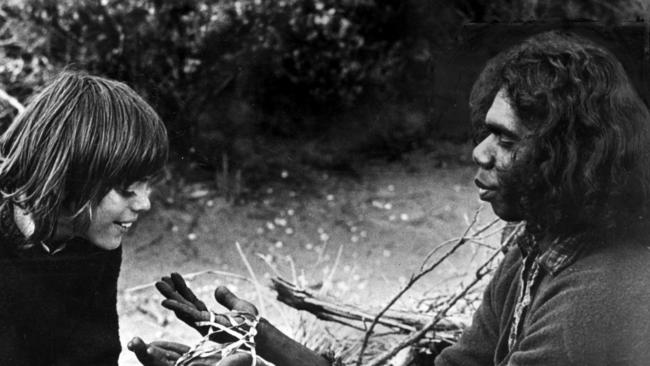
Rowe, plucked from obscurity with no acting experience, also had roles in Peter Weir’s The Last Wave and the less well remembered Blue Fin, based on Thiele’s book about tuna fishing, but made his last film more than 30 years ago and now lives overseas. Tracked down by a morning breakfast program, he confessed he couldn’t bear to watch himself on screen until quite recently.
Gulpilil is another story.
His screen charisma was evident from the moment he gave the child he found hiding in the grass the name Storm Boy.
“Fingerbone Bill lives alone and he communicates with the pelicans then the little boy came and I had to say quickly, ‘You must be Storm Boy, you’re running like the wind’,” Gulpilil remembers. “They’re both telling the story; from me how I loved the pelican because it was my Dreaming, and the little boy loved it too.”
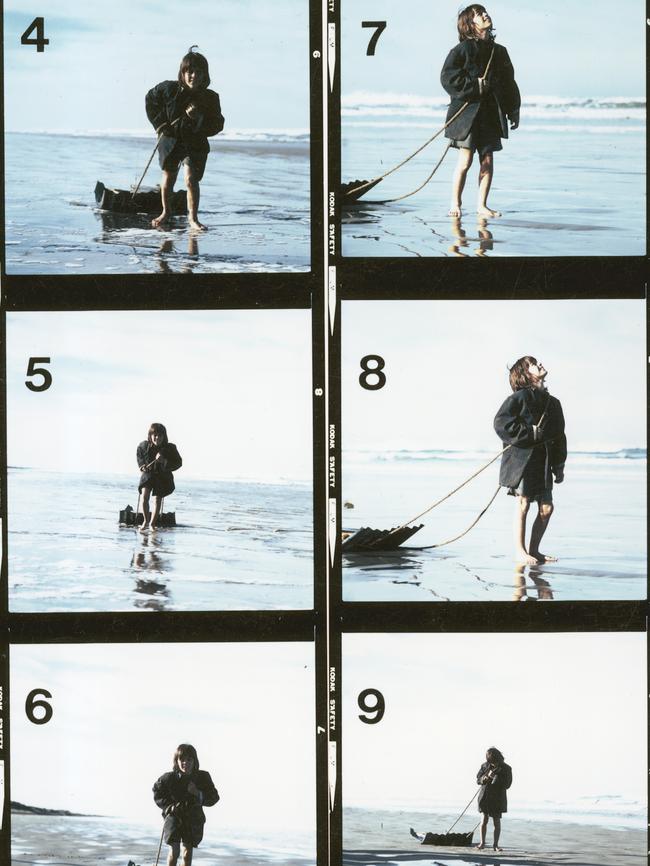
It was one of the first films made about relationships between white and black Australians and followed on the heels of the 1971 film Walkabout – in which Gulpilil also starred.
“David Gulpilil is such a magnetic screen presence, I think any work that he does gets seared into your mind,” said Ms Sheehan.
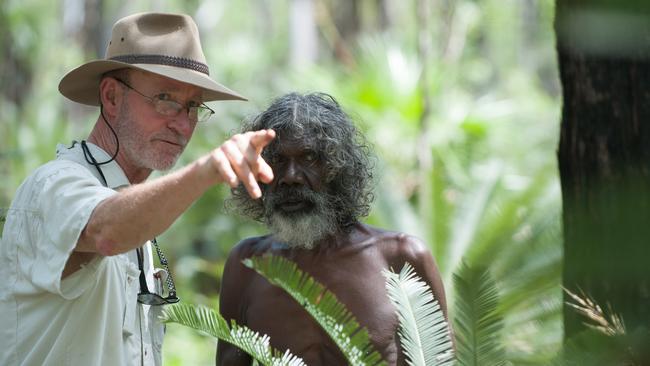
“He is a magnetic performer and he brings with him a whole sense of his story – and he’s able to project that into characters. I think that’s why it’s interesting.”
The third star was the irresistible waddling pelican who followed Storm Boy along the sand and caught balls in his bill. Drafted from Marineland (the West Beach aquarium that closed 30 years ago), Mr Percival was the primary pelican but he shared duties with two others, depending on which pelican skill set was needed.
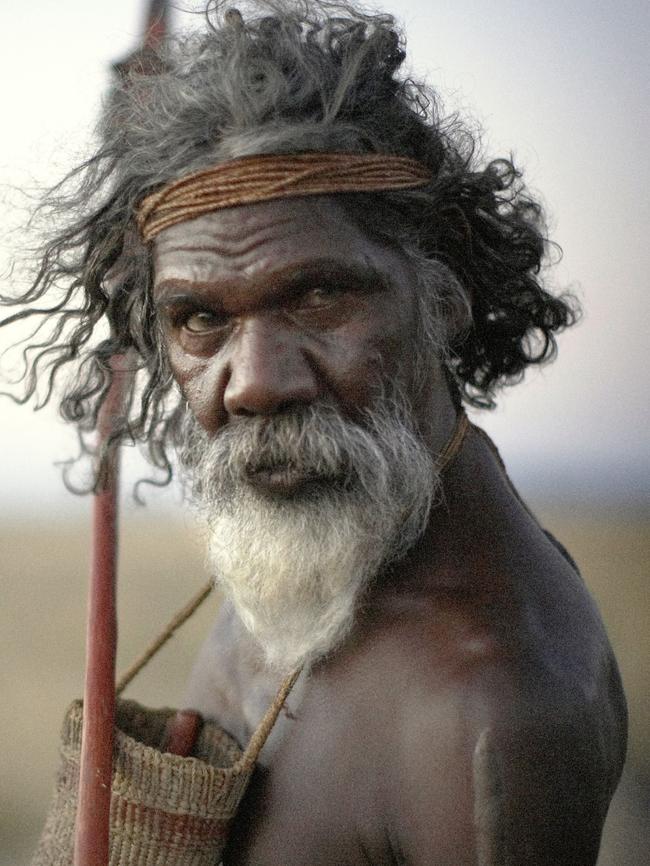
Ms Sheehan said the SAFC still owned Storm Boy which was one of a handful of successful films made when the SAFC was a production house from its inception in 1972 until 1994. The National Film and Sound Archive has remastered it and a new version will be shown at a family-friendly matinee on October 25, the last day of the Adelaide Film Festival.
Ms Sheehan said the SAFC would consider how to celebrate Storm Boy’s 40th anniversary next year and whether to release it across multiple media platforms.
“The fact the NFSA chose to restore it and put it out there is a great tribute to its beauty as well,” she said.
“I would love to see it have a new lease of life.”
Living legend’s plea for respect
“MY name is David Gulpilil. I’m a dancer and artist like many of my people ... I won awards, I travelled the world, I hung out with Jimi Hendrix ... Not bad, eh, for a black fella? I’ve been to prison too, more than once. That’s me, David Gulpilil, a living legend ...”
So begins Gulpilil’s reflective film about his home in the Aboriginal settlement in Arnhem Land a day’s drive from Darwin, Ramingining.
Titled Another Country, and directed by Molly Reynolds, Gulpilil seeks to show how and why white Australia fails black people.
“Why did they build a town where there is no work, no facilities, nothing to do, no future?” he asks.
“White men decided they think they know more about us than we do.”
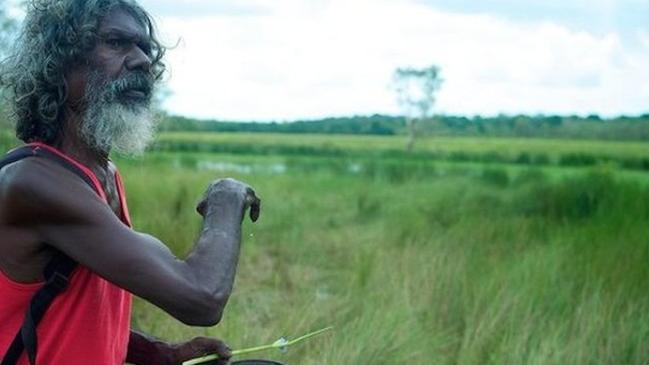
Cultural understanding has been lost, he says, as white Australia forced Aboriginal people who should never be living together into the one place, like Ramingining.
No respect is shown for indigenous people who might speak four or five languages but none of them English, and the old ways of sharing everything among small independent groups is a source of friction when what is being shared is money.
“Money makes bigger problems in our culture than yours,” he says. “The obligation to share everything is still very strong.”
There are confronting moments, as when a kangaroo is bailed up by the town’s dogs and killed, but also moments of hope when the faces of the young men light up on the football field. At its heart, it is a plea for understanding from an actor and tribal man with a foot in both worlds.
“You have to try and understand, listen to our history,” he says.
Another Country screens in the AFF on October 17 and 19.
